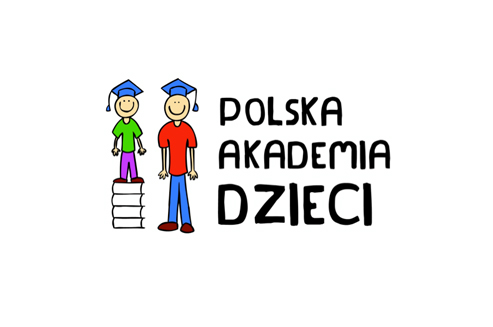The Project Polish Academy of Kids is the first university run by kids on an international scale, where Young Scientists can freely choose the field of scientific interest. Our lecturers are from 6 to 12 years old and examine magnetic levitation, the missing links of vertebrates’ evolution or dogs, cats and stick insects. They decide about the scope of research and we, adults, only help them with the technical aspects and show reliable sources of knowledge.
We base our initiative on opening the doors of higher education institutions to kids, regardless of their social status or results at school. We also want to offer them a chance to give their own lectures in cooperation with scientists from various institutions in Poland.
The founders of Polish Academy of Kids dream about Poland becoming in the next 10 years the first country in the world where every child can participate in free lectures organised in higher education institutions and where Young Scientists from 6 to 12 years old can give their own lectures.
Each academic year finishes with a scientific conference for children, which is organised on an annual basis on the Kids Day, June 1. At each conference there are a few lectures given by Young Scientists as well as renowned Polish and international researchers. During a break between lectures all participants are offered some pizza and at the end of the conference there is a chocolate fountain.
The first initiative like this took place at the University of Gdansk on June 1, 2009 and it was called the First All-Polish Reunion of Young Scientists. There were 350 participants from all Tricity and its vicinity.
The second conference was organized at Gdansk University of Technology on June 1, 2012. Its guest of honour was Scott Parazynski, PhD, who talked about his journeys to the universe with NASA and climbing Mount Everest. There were 550 participants at the conference.
The third conference took place on June 1, 2011 at the Polish Baltic Frederic Chopin Philharmonic in Gdansk. We hosted Jonathan Gardner, PhD, who talked about the biggest NASA project – the construction of James Webb’s telescope. There were 900 participants at the Second International Scientific Conference for Children.
The Fourth International Scientific Conference for Children was organised by the Open University of Technology and Polish Academy of Kids. It was held under the auspices of Gdansk University of Technology’s Rector, the Ministry of Science and Higher Education, the Foundation for the Development of the Education System and the Games Research Association of Poland.
On Kids Day, June 1, 2012, the Gdansk University of Technology was visited by more than 600 unusual scientists. The vast majority of them are robotics, chemistry, biology and cosmology fans from 6 to 12 years old. Kids came to the conference from all over Poland (Żyrardów, Bydgoszcz, Warszawa, Nowy Sącz, Kartuzy, Starogard Gdansk) as well as Lithuania and Belarus. It was a memorable event because both big and small scientists were able to reflect on symmetry, nano- and macro scale.
The first section, held by professor Lech Mankiewicz, president of the Centre for Theoretical Physics of the Polish Academy of Sciences, was started by Dawid Zapisek, a 14-year-old member of Polish Academy of Kids, who gave a lecture about symmetry and was awarded by professor Eligiusz Mieloszyk a replica of Fields Medal. The next lecture about the symmetry in the background radiation was given by Edward Wollack, PhD, from NASA. At the end of his speech he handed out some NASA souvenirs. Even though pizza was distributed since 12 o’clock, the kids kept asking doctor Wollack questions for another 40 minutes.
After pizza there were more than 40 lectures given by younger and slightly older scientists from Lithuania, Belarus and Poland. There were electric generators devised by Przemek Lisowski, 11 years old, an interview with a Nobel prize winner by Agnieszka Mankiewicz from Warsaw, a chemical-culinary show given by master chefs from Metamorfoza restaurant from Gdansk who worked under Mariusz Pieterwas’ leadership and the verbal symmetry by professor Tadeusz Morawski from the Gdansk University of Technology, the most eminent creator of palindromes in the Polish history of literature. On the occasion of the conference Professor Morawski published a special book for children about the symmetry of words. At the end there were fountains of Belgian chocolate waiting for children on the Gdansk University of Technology’s yard.
In the academic year 2012/2013 6000 children took part in more than 500 free lectures organised by Polish Academy of Kids in 10 Polish cities. Thanks to all non-profit volunteers who jointly create the Polish Academy of Kids we managed to run this project in the following higher education institutions: University of Warsaw, Jagiellonian University in Kraków, Gdansk University of Technology, Medical University of Gdańsk, Adam Mickiewicz University in Poznań, Kazimierz Wielki University in Bydgoszcz, University of Social Sciences and Humanities, Academy of Kids in Nowy Sącz, University of Lower Silesia in Wrocław, College of Humanities and Journalism in Poznań, Gdańsk University of Physical Education and Sport, Gdańsk University of Physical Education and Sport, the Academy of Music in Gdańsk as well as Gdansk Science and Technology Park, Centre for the Blind and Vision Impaired in Laski and Children’s Home in Kartuzy.
Polish Academy of Kids was nominated the Science Populariser 2011 and 2012 in the contest organised by Science and Scholarship in Poland (Polish Press Agency and Ministry of Science and Higher Education) while the co-founders of Polish Academy of Kids were awarded the Pol-Cul prize for their contribution to children’s development in Poland and won the award of distinction for the best voluntary initiative in Pomerania.
Our Association is willing to cooperate with scientific centres in Poland and abroad. In October 2012 we started running the project in Holland. The first, inaugural meeting was organized on February 9, 2013 at Polish Embassy in The Hague.
You can find more information about Polish Academy of Kids on akademiadzieci.edu.pl.


